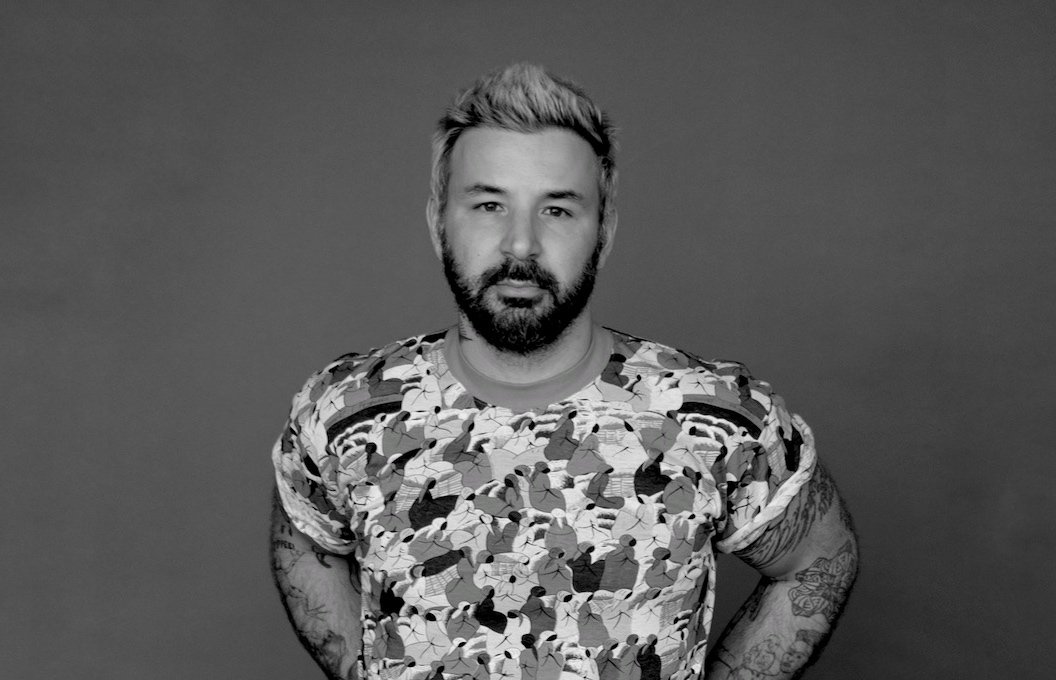Click Image to Download!
The son of an English professor mother and a shipwreck diver/underwater archaeologist father, indie folk artist ZG Smith came of age in Los Angeles wanting only two things: to memorize the scientific names of all of the marine flora and fauna of the California coast, and to literally somehow be both Kurt Cobain and Paul Simon, simultaneously. Though neither desire was fully realized, he did find himself experiencing the kind of untamed, precocious adolescence that can only exist in certain notable big cities of the world. The kind of adolescence where a part time job might be selling nitrous oxide (laughing gas) at parties in theHollywood Hills from old SCUBA tanks for a dollar a balloon, or where a new high school student might end up 150 miles from home at a rave in the middle of the Central Valley on a school night, then have to hitchhike home, or even the kind where a 15-year-old sophomore might purchase a fake ID from a shady strip mall in Koreatown, then subsequently gamble (and win) in a notable Las Vegas casino the following weekend. The kind of adolescence that would eventually culminate with a narrowly-achieved bachelor’s degree in ethnomusicology (focusing on Brazilian percussion) from UCLA. If this is sounding like a lost script from Paul ThomasAnderson, it’s because the twists and turns in ZG Smith’s timeline are just peculiar enough to be true.
Post-college, ZG (a nickname sometimes used by his maternal grandfather) got his feet wet both literally and figuratively by playing rock, jazz, and bluegrass gigs around LA on drums or upright bass, and working as a surf instructor in the mornings, and a bar security guard and part-time DJ in the evenings. “This was a great time of discovery for me”, Smith muses.“I was doing everything I was interested in, all at once: music, surfing, nightlife and bar culture...and cobbling it all together to pay rent.” A journeyman player and multi-instrumentalist, he eventually came across the music of country blues legend, Mississippi JohnHurt, and thus started his ongoing decade-plus love affair with finger style guitar. In spare moments he would find himself perched on the edge of his bed in his small apartment, just east of Venice Beach, diligently working at teaching himself guitar, and eventually developing an unusual three-finger style reminiscent of bluegrass banjo playing.
Over time, though, he began to feel stagnant in the music he was making in Los Angeles, and almost unconsciously, he was quietly cultivating an ever-growing desire to write, sing, and perform his own songs. “I really prided myself on being a versatile musician, and I always had a knack for the written word ever since I was very young, so naturally I wanted to explore integrating those two things, but I had never really sang in public before. Honestly, I felt like I was pretty vocally tone-deaf for most of my life, but I had this batch of about 5-6 songs I had written that literally no one had heard.” Smith describes that initial batch of songs as “complex, bluesy, and groovy” finger style guitar tunes, a combination of Nick Drake and Hill Country blues, and though he admits that perhaps he thought they might be good, he wasn’t entirely sure. “I wanted to go somewhere and play them where I didn’t know anyone, and the stakeswere lower for embarrassing myself if it sucked”, he laughs.
Having visited Nashville, TN only once, back in 2010, he quickly hatched a plan to movethere, completely alone, and reinvent himself, musically. “I immediately loved Nashville.Especially East Nashville. The music scene felt vibrant and community-oriented in a way thatLA didn’t to me at that time.” Though it was hard-going at first, Smith eventually found hisfooting. “You move to a city where you don’t know a soul, 2,000 miles from where you’re from, and of course there’s going to be an adjustment period.” Smith worked service industry jobs for awhile; he was a server and a fry cook at various restaurants, and also busked regularly asa ‘one-man-band’ down on Broadway. “Back when they allowed you to perform freely on Broadway, I would play guitar, harmonica, a few foot drums all at the same time, and sing my original songs to make some extra money. I was playing writer’s rounds and open mics frequently, and I got to know a lot of people around that time...a lot of them moved away, gave up on music, some of them are flourishing as artists right now, like Kyshona, who was one of my first friends in town, and who co-wrote the title track of the new EP with me.”
Fast forward just a handful of years from that initial solo move from LA to Nashville, and ZG Smith has managed to check off a veritable cornucopia of bucket list-worthy achievements.He’s founded the celebrated Americana duo, Smooth Hound Smith, (for which he was thefrontman, primary songwriter, and bandleader), and in addition, has performed his original music on hundreds of stages, including legendary ones like Nashville’s own Ryman Auditorium and Bridgestone Arena. His band has headlined tours in the US, Europe and The UnitedKingdom, played sets at festivals like Bonnaroo and SXSW, and has secured support slots both domestically and abroad for bands like The Chicks, Collective Soul, Trombone Shorty, and Jamestown Revival, to name a few.
“We had released the third Smooth Hound LP in 2019 and followed it up with a big domestic club tour, then in February of 2020, we did a month-long, 8-country European tour that was really successful. We sold out shows in Spain, Germany, and The Netherlands, and it really feltlike we were making some moves. We all know what happened after that...”. Like virtually everyone else in the music industry, Smith’s career, along with the trajectory of his band, came to a screeching halt during the pandemic. During that forced hiatus, he was able to focus on other artistic pursuits and critically think about what he wanted to do musically. “I started actually seeking out music again, like I did when I was younger. I realized that I had been so focused on Smooth Hound and trying to push the band forward, that I kind of stopped listening to music just for enjoyment. I had the time, so I dug this massive hole in my backyard, level edit off, and laid a patio made up of over 1,200 bricks, all by hand. It took me about a month, and I would just be out there all day in the sun listening to North African music- desert blues, orEDM, or 90’s hip hop, or bizarre, outsider folk music. A lot of that stuff that I only realize now with some perspective, really informed the EP that we ended up creating months later.”
In the winter of 2021, Smith decided, along with friend, collaborator, and buzzy, psychedelic soul phenom, Devon Gilfillian, and Devon’s band, Jonathan Smalt and Taylor Thompson, to embark on a trip of sorts. “I think it’s probably a musician trope, now, at this point,” laughsSmith, “but the seeds of this EP were actually sown back in February of 2021 on a mushroom trip with Devon, Jon, and Taylor. The four of us are longtime friends; we all worked on Devon’s first project together, and I’ve written songs with Dev that were on that initial EP, as well as his full-length debut released by Capitol Records...we’ve collaborated off and on, in between our respective touring schedules, for years; those guys were groomsmen at my wedding, you know? It seemed only natural to get super fucked up together!” says Smith, who recently opened several shows for Gilfillian on a six-week tour through Scandinavia, in addition to playing guitar and percussion in his band. The magic mushroom experience was described as having “some pretty severe ups and downs”, and was likened to a rollercoaster that he had to hold onto in order to not fly off the rails. “I’ve ingested psilocybina number of times, but this strain was particularly strong, and I just remember having this feeling of time evaporating, and me not creating the things I knew I was capable of creating. It felt like an intense shame, and that I was squandering something I possessed.” Smith voiced these thoughts to his friends in the moment, and just a few weeks later found himself in the home studio of engineer ReidLeslie (Devon Gilfillian, Avi Kaplan) along with Gilfillian et al. “After that experience, I took action. The first song we worked on for the ‘Nighttime Animal’ EP was ‘Hooks’. It was supposed to be a one-off kinda thing, just to see how it’d go with this dynamic...Jon played drums and produced it with me, Taylor played bass, I did some guitars and electronic percussion and sang, and Devon came in and laid down all these gorgeous vocal pads and harmonies. You can hear us beginning to cook up something really cool; the desert blues influence is there in the main guitar hook, and I feel like the synth drum part is a sly nod to Ann Peebles’ ‘I Can’t Stand The Rain’. I think we all realized pretty quickly that we had something really special.”
Shortly after that first session, Smith and drummer/producer Smalt made plans with Leslie to create an EP. “I had the songs in the pipe, it was just a matter of choosing them.” Smith and Smalt, who would go on to co-produce the EP, carefully chose the six songs that would make the cut, then, with Leslie engineering, played nearly all the instruments on the EP. Smith remarks that “...we had a few players come in; Taylor played most of the bass, Blake Reams(Becca Mancari) played some incredible stuff on steel, and Josh Blaylock (Maren Morris, Gilifillian) created some integral parts on keys, but it was largely Jon and I playing almost everything. I played the guitars, he played some piano, and we both have percussion backgrounds, which was a really fun thing, to create all these polyrhythms with someone knowledgeable.”
Mostly working as a skeleton crew, with just the three of them, Smith, Smalt, and Leslie worked around each other’s schedules, which meant, with the return of live music, it took the better part of a year to finish the EP. “I’m glad we took our time; it felt great to not have an agenda and to have a little financial cushion.” The cushion Smith speaks of is yet another pandemic project; he and ex-partner/bandmate, Caitlin Doyle, opened and currently co-own a successful vintage clothing store in East Nashville called Backslide Vintage that has allowed him to create music with a bit more care. “I’m used to being rushed to produce ‘product’, or something I can sell to keep fans engaged and everything moving forward, but sometimes creative projects need to steep and ferment, and the music industry the way it is now doesn’t do a good job of allowing for that”, he observes. “I’ve always loved vintage clothing...my favorite denim jacket is an old Wrangler I found at a Goodwill back in high school, and I still have it. Backslide is a great thing in that it allowed me to use a different part of my creative brain. I was building fixtures and problem solving in new ways, and now it feels like we’re adding something valuable to the community. It’s ultimately helping me be a little more selective with what I do musically, and allowing me to create things with more care; it’s a win for everyone.”
On his debut EP, ‘Nighttime Animal’, the care ZG Smith speaks of is apparent. The skillful lyricism, intricate instrumental parts, and unique production manage to cut a wide swath in a musical landscape that at times can be inundated with sameness. These qualities make it difficult to classify, and yield an album that’s equal parts indie, folk, bedroom pop, with tasteful morsels of electronica, and is a textbook example of all that can be achieved when a nuanced artistic endeavor is given time to steep and marinate in the experiences of it’s creator.









